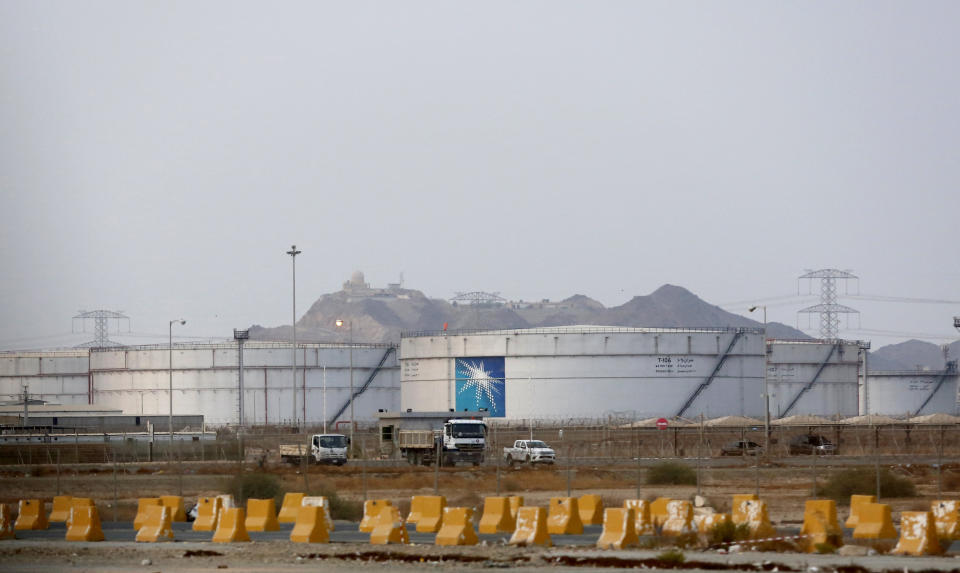Oil prices surged Monday after an attack on Saudi Arabia's largest oil processing plant halted output of more than 5.7 million barrels of crude a day.
But after an initial spike, crude oil prices moderated as traders analyzed the likely longer-term implications.
By late morning in Asia on Monday, U.S. crude oil was up $4.89 per barrel, or 8.9%, to $59.73 per barrel early Monday in electronic trading on the New York Mercantile Exchange. Brent crude, the international standard, surged $6.02 per barrel, or 10%, to $66.25 per barrel.
Earlier, U.S. crude jumped more than 15% and Brent leaped nearly 20%.
Yemen's Iran-backed Houthi rebels claimed responsibility for the attack on the Saudi Aramco facility that paralyzed production of more than half of Saudi Arabia's global daily exports and more than 5% of the world's daily crude oil production.
Most of the output goes to Asia, where markets were mixed Monday in early trading. Japan's markets were closed for a holiday, while Hong Kong's Hang Seng dropped 1%. The benchmark in Indonesia, which heavily depends on oil imports, dropped 1.6%.
"To take Saudi oil production down 50%, that's shocking," said Jonathan Aronson, a research analyst at Cornerstone Macro.
The attack may add to anxiety about the stability of the world's oil reserves. "Saudi Arabia has been a very reliable supplier of oil in the world," said Jim Burkhard, who heads crude oil research for IHS Markit. This attack is "adding a geopolitical premium back into the price of oil." That means oil prices would rise because of worries about more unrest hurting supply. Higher oil prices tend to hurt the economy as consumer costs rise.
Still, existing reserves were expected to help bridge any shortfalls, and work was under way to restore production at the Abquaiq plant. The Wall Street Journal reported Sunday that Saudi officials said a third of crude output will be restored by Monday. Bringing the entire plant back online may take weeks. Officials said they would use other facilities and existing stocks to supplant the plant's production.
The world's richest countries have oil reserves of more than 2 billion barrels, but releasing those to alleviate supply concerns could potentially backfire and result in higher prices on the market as traders worry that there is a problem with tight supply, he said.
According to the Joint Organization Data Initiative, Saudi Arabia has nearly 27 days worth of reserves. It holds reserves at home and in Egypt, Japan and the Netherlands.


